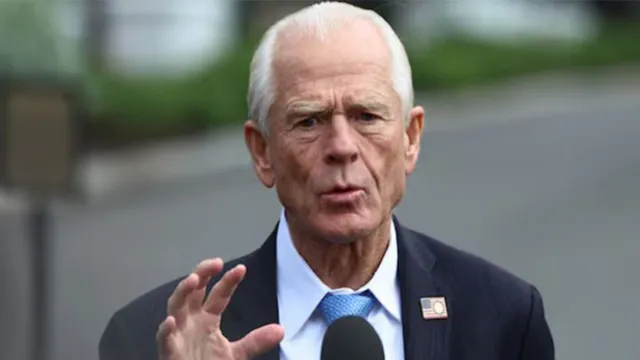- By Nidhi Giri
- Mon, 01 Sep 2025 11:04 AM (IST)
- Source:JND
US President Donald Trump's Trade Advisor Peter Navarro made a caste-based remark during an interview with Fox News on Monday, accusing the Brahmins of the country for profiteering "at the expense of the Indian people". The White House adviser also referred to New Delhi as a "laundromat for the Kremlin". He called out India for enabling trade imbalances and geopolitical alliances that run against US interests, justifying the decision to levy a 50 per cent tariff on the country's imports.
"And on top of that, by the way, 25 per cent or 50 per cent is because India is the Maharaja of tariffs. They have the highest tariffs in the world. They won't let us sell to them, so who gets hurt, workers in America, taxpayers in America... Ukrainians in cities are getting killed by Russian drones," the White House Trade Adviser said, as quoted by news agency ANI.
"So, you know, look, Modi's a great leader... But I don't understand why he's getting into bed with Putin and Xi Jinping...when he's the leader of the biggest democracy in the world. I would just simply say to the Indian people. Please, understand what's going on here. You've got Brahmins profiteering at the expense of the Indian people. We need that to stop," Peter Navarro added.
ALSO READ: Bihar Election 2025: Rahul Gandhi-Led 'Voter Adhikar Yatra' To Wrap Up Today | Key Highlights
On Friday, Navarro accused India of profiting from Russian oil.
"India's Big Oil lobby has turned the largest democracy in the world into a massive refining hub and oil money laundromat for the Kremlin. Indian refiners buy cheap Russian oil, process it, and export fuels to Europe, Africa, and Asia - shielded from sanctions under the pretence of neutrality," Navarro stated in a series of posts on X.
The remarks come as Prime Minister Narendra Modi is attending the Shanghai Cooperation Organisation (SCO) Summit 2025 in Tianjin, China, where regional security, trade, energy cooperation, and evolving geopolitical alignments remain the focus of discussions.

